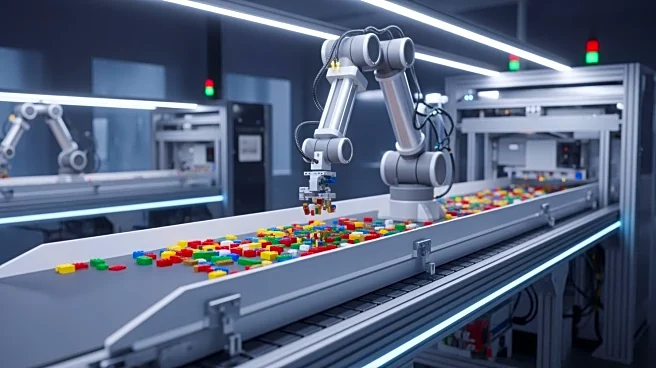What's Happening?
Lithuania-based startup Sort A Brick has introduced an innovative automated system designed to sort pre-owned LEGO bricks, marking a significant advancement in the toy reuse sector. The company is currently seeking €3 million in funding to scale up its
operations. The system utilizes custom-built hardware, software, and proprietary artificial intelligence to efficiently process mixed piles of LEGO bricks. It can identify and sort over 25,000 unique bricks across more than 4,000 shapes and 40 popular colors with over 99% precision. This technology allows for the organization of mixed bricks into build-ready sets, significantly reducing the time and labor traditionally required for manual sorting.
Why It's Important?
The development of Sort A Brick's automated sorting system represents a major step forward in the sustainable reuse of toys, particularly in the growing market for secondhand goods. As families increasingly seek affordable and sustainable play options, the demand for used toys, including LEGO sets, is on the rise. The secondary LEGO market has reportedly outpaced retail sales, reaching approximately €1 billion in 2024. By providing a more efficient sorting solution, Sort A Brick is poised to tap into this expanding market, offering a viable alternative to traditional resale methods and supporting the circular economy.
What's Next?
Sort A Brick plans to launch two pilot sorting centers in Western Europe, which will serve as a foundation for further expansion. The company is also working on a next-generation conveyor system that will operate at 20 times the speed of the current model, aiming to enhance accuracy and throughput. These developments are expected to increase the company's capacity to meet the growing demand for sustainable LEGO play options across Europe and beyond.
Beyond the Headlines
The introduction of Sort A Brick's automated sorting system could have broader implications for the toy industry, particularly in promoting sustainable practices and reducing waste. By enabling the reuse of LEGO bricks in complete sets, the company is contributing to a closed-loop system that aligns with global sustainability goals. This innovation may also inspire similar advancements in other sectors of the secondhand goods market, further supporting the shift towards more sustainable consumption patterns.















